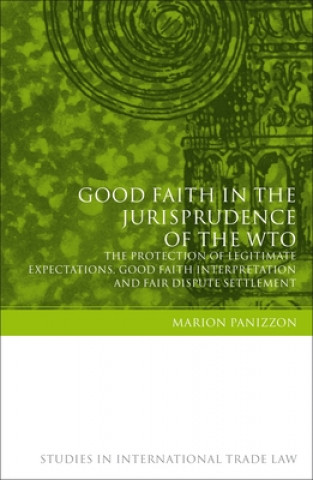
Kod: 04850060
Good Faith in the Jurisprudence of the WTO
Autor Marion Panizzon
What does the concept of good faith express? This book is the first to discuss what good faith means in international trade law. As a reference guide for scholars and practitioners it analyses the case law of WTO dispute settlemen ... więcej
- Język:
 Angielski
Angielski - Oprawa: Twarda
- Liczba stron: 434
Wydawca: Bloomsbury Publishing, 2006
- Więcej informacji o książce

Zobacz książki o podobnej tematyce
Bon podarunkowy: Radość gwarantowana
- Podaruj bon o dowolnej wartości, a my się zajmiemy resztą.
- Bon podarunkowy dotyczy całej naszej oferty.
- Możesz wydrukować elektroniczny bon z e-maila a następnie przekazać go obdarowanemu.
- Ważność bonu wynosi 12 miesięcy od daty wystawienia.
Więcej informacji o Good Faith in the Jurisprudence of the WTO
Za ten zakup dostaniesz 562 punkty
 Opis
Opis
What does the concept of good faith express? This book is the first to discuss what good faith means in international trade law. As a reference guide for scholars and practitioners it analyses the case law of WTO dispute settlement practice. The book describes how, why and when the concept of good faith links the WTO Agreements with other public international norms. The concept of good faith appears frequently in treaties and customary rules, but is most often considered a general principle of law. WTO law uses the corrolaries of pacta sunt servanda, the prohibition of abus de droit and the protection of legitimate expectation alongside the principle of good faith. An analysis of GATT 1947 and WTO case law reveals that the function of good faith varies. The Panel reports and the Appellate Body decisions make different use of it. The Appellate Body is prepared to apply the principle to WTO provisions only, while Panels use it more freely and substantively; that is, they apply good faith to fill lacunae in any of the WTO covered agreements. Also, adjudicators use the principle differently, depending on whether it relates to the agreements covered by the WTO or the procedural law of WTO dispute settlement. As it applies to the former, good faith is used to strike a balance between, on the one hand, the obligation to liberalise trade, and on the other hand, the right to invoke an exception to trade liberalisation for the protection of the environment, culture, public morals, human life or health. In this way, good faith safeguards the gains of multilateral trade liberalisation against unlawful interests such as disguised protectionism. The book also introduces the novel field of WTO procedural law governing trade dispute litigation. In the Dispute Settlement Understanding (DSU), good faith appears in the standard of review, rules of evidence and fact-finding, standing, duty of prior consultation, right of establishment of a panel, ex officio investigations, withdrawal of notices of appeal, and the raising of objections. In all these areas it ensures that the rules of dispute resolution are not abused. The Appellate Body has even gone so far as to derive a new standard from the principle of good faith that demands that disputes are settled fairly, promptly and effectively. Insights into good faith in WTO law are not only important for trade law professionals. Current applications and future operations of the principle are likely to be of strategic value for answering the increasingly pressing question of how WTO law and other international agreements ought to be reconciled.
 Szczegóły książki
Szczegóły książki
Kategoria Książki po angielsku Law International law Public international law
965.02 zł
- Pełny tytuł: Good Faith in the Jurisprudence of the WTO
- Podtytuł: The Protection of Legitimate Expectations, Good Faith Interpretation and Fair Dispute Settlement
- Autor: Marion Panizzon
- Język:
 Angielski
Angielski - Oprawa: Twarda
- Liczba stron: 434
- EAN: 9781841136202
- ISBN: 1841136204
- ID: 04850060
- Wydawca: Bloomsbury Publishing
- Waga: 812 g
- Wymiary: 243 × 164 × 31 mm
- Data wydania: 19. October 2006
Ulubione w innej kategorii
-

Stanislavski On Opera
191.29 zł -

International Law
195.12 zł -
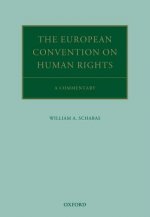
European Convention on Human Rights
390.55 zł -5 % -

European Union Law: A Very Short Introduction
42.68 zł -23 % -

Environmental Law: A Very Short Introduction
42.68 zł -23 % -

Europarecht in Fällen
184.95 zł -

Cyber Warfare and the Laws of War
211.23 zł -

Tallinn Manual 2.0 on the International Law Applicable to Cyber Operations
360.65 zł -

Refugee in International Law
370.92 zł -

Sceptical Essays on Human Rights
334.07 zł -

A Farewell to Wars
139.34 zł -
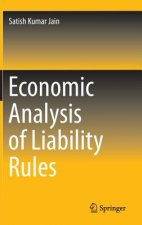
Economic Analysis of Liability Rules
285.84 zł -

Cassese's International Criminal Law
349.98 zł -

International Law
185.96 zł -14 % -

Textbook on International Law
206.80 zł -22 % -

International Law 2nd Edition
274.16 zł -

Principles of International Environmental Law
277.99 zł -

Offshore Finance
225.63 zł -

Advanced Introduction to International Humanitarian Law
129.67 zł -10 % -

Human Dignity
235.39 zł -

Critical Approaches to International Criminal Law
336.08 zł -

Rogue States
99.67 zł -10 % -

Criminological Approaches to International Criminal Law
437.57 zł -14 % -

Self-Defence in International and Criminal Law
901.64 zł -

Handbook of Environmental Policy Evaluation
767.02 zł -

Pluralism in International Criminal Law
905.26 zł -

Disputed Territories and International Criminal Law
658.68 zł -

EU External Relations Law
342.12 zł -5 % -

Water Capitalism
226.43 zł -
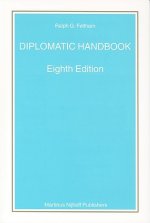
Diplomatic Handbook
552.86 zł -

Brownlie's Principles of Public International Law
348.26 zł -

International Environmental Law
259.46 zł -

Cases & Materials on International Law
288.05 zł -
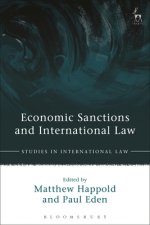
Economic Sanctions and International Law
718.89 zł -

Aust's Modern Treaty Law and Practice
211.53 zł -5 % -
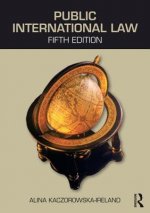
Public International Law
360.45 zł -

Critical Introduction to International Criminal Law
163.20 zł -

Modern Diplomacy
285.84 zł -

International Investment Law and Arbitration
335.28 zł -
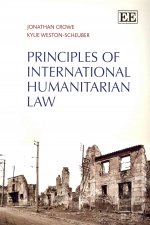
Principles of International Humanitarian Law
139.84 zł -9 % -

World Crisis and International Law
139.34 zł -

Principles of International Economic Law
414.01 zł -

Environmental Protection
73.39 zł -4 % -

Food Law and Regulation for Non-Lawyers
528.29 zł -

Should Trees Have Standing?
184.15 zł -

Research Handbook on International Environmental Law
304.57 zł -3 % -

International Criminal Law
300.44 zł -

European Public Prosecutor's Office
918.85 zł -

Customary International Law in Times of Fundamental Change
191.70 zł
zadowolonych klientów
Od roku 2008 obsłużyliśmy wielu miłośników książek, ale dla nas każdy był tym wyjątkowym.
Copyright! ©2008-24 libristo.pl Wszelkie prawa zastrzeżonePrywatnieCookies




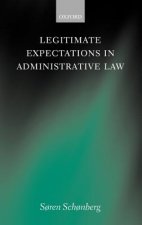
 21 milionów książek
21 milionów książek Dostawa 10.99 zł
Dostawa 10.99 zł (32) 444 93 66 (8-15.30h)
(32) 444 93 66 (8-15.30h)